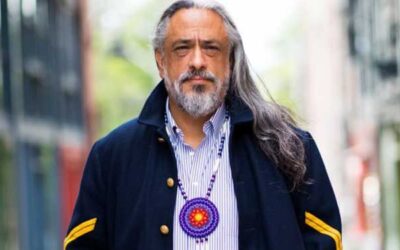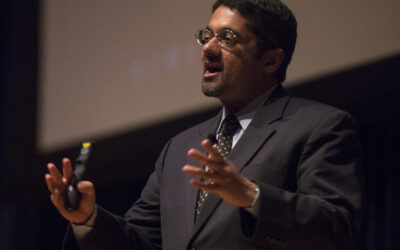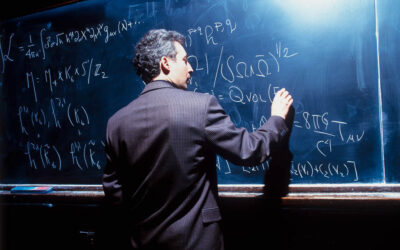This spring, Town Hall is thrilled to welcome performance and visual artist Timothy White Eagle as our Artist-in-Residence. He has worked extensively over the past two decades exploring Native American, Pagan, and other earth-based spiritual practices. This will be a continued focus during his residency, as he interrogates the differences between early Indigenous peoples’ handling of death and the Christian colonizer approach to death, a topic that has been heavy on his mind in the time of COVID.
Shankar Vedantam Shines a Light on the Hidden Brain
Our brains are mysterious. There are as many neurons in the brain as there are stars in the Milky Way galaxy. That’s a lot of neurons. There’s much we don’t know about what goes on inside our noggins.
It’s not every man that can explain String Theory to Everyman.
It’s not every man that can explain String Theory to Everyman. No, most people can’t put into simple terms what a Calabi-Yau manifold is. Nor what Ricci flatness is. Most folks can’t make much sense of the multiverse, even if they did watch Spider-Man: Into the Spider-Verse. Luckily, there are some talented people out there who can take huge mind-blowing questions and concepts and make them understandable to people like, well, us here at Town Hall. Enter Brian Greene.
Maybe There’s A Way to Celebrate with Us After All…
Hi friends, On Election Night I wrote to tell you how much we missed you, and missed the chance to share the night’s energy and anticipation with you. I mentioned the power we feel when we’re with...
Streaming Saturdays With Earshot Jazz
Want to feel the energy and emotion of live music while you’re stuck behind closed doors? In collaboration with Earshot Jazz, Town Hall is streaming live Saturday jazz concerts at the end of March and the first three weeks of April, directly from our stages!
Connecting Across the Social Distance with Eric Liu
At a time when quarantines are keeping us isolated from our neighbors, it’s more important than ever to help us maintain connections with our community and stay engaged as citizens.
Getting Animated with Gustafer Yellowgold
A pancake smackdown, gravy bats, a little yellow man from the sun who loves to go on adventures—Morgan Taylor’s creations have been delighting kids and parents alike since 2005.
Can You Help Migrating Birds By Turning Off Your Lights?
Every year, millions of birds migrate along the Pacific Flyway—the migratory path that stretches over 4,000 miles from the coast of Mexico to the Arctic Circle. And each year, light pollution from populated areas can disorient and disrupt the rhythms of these birds.
Happy Birthday, Town Hall Seattle
This isn’t a day to celebrate Town Hall, it’s a day to celebrate us all.



